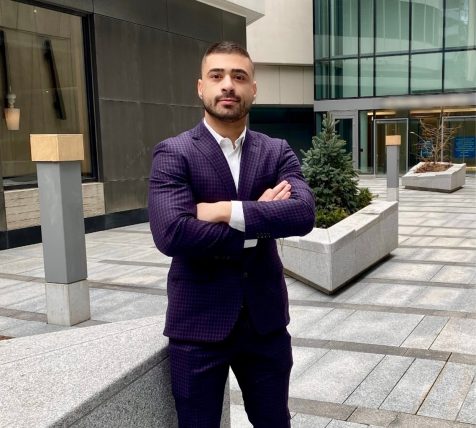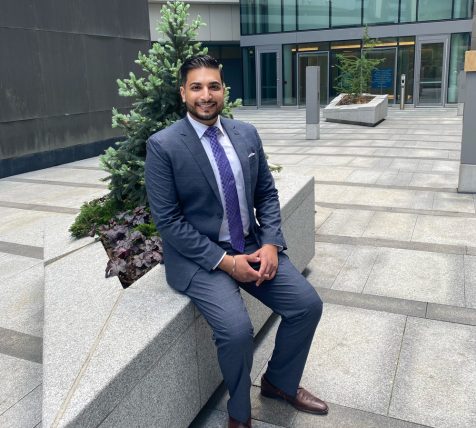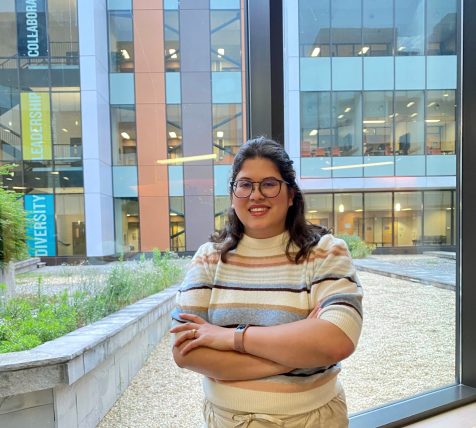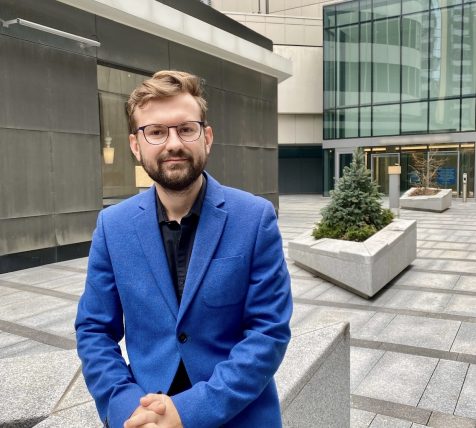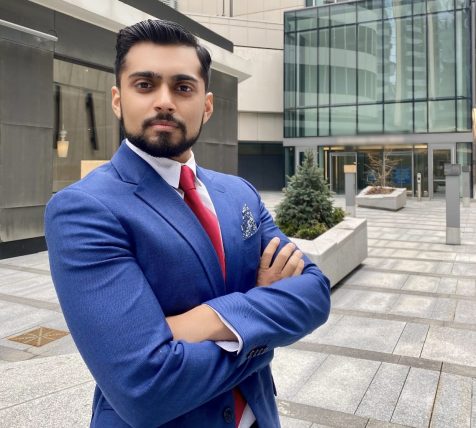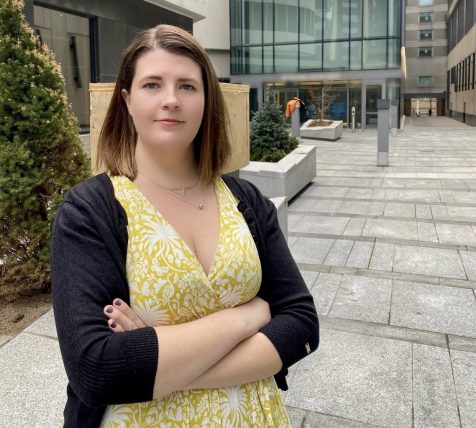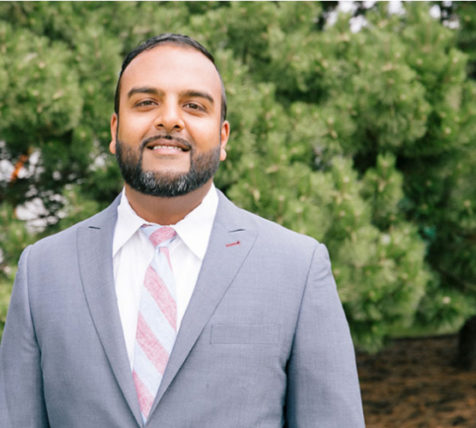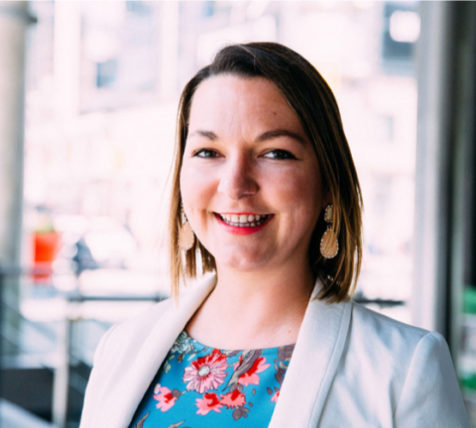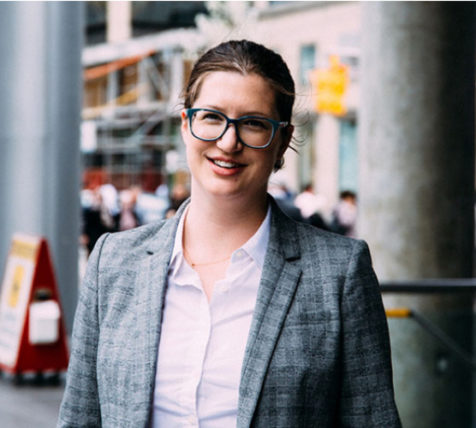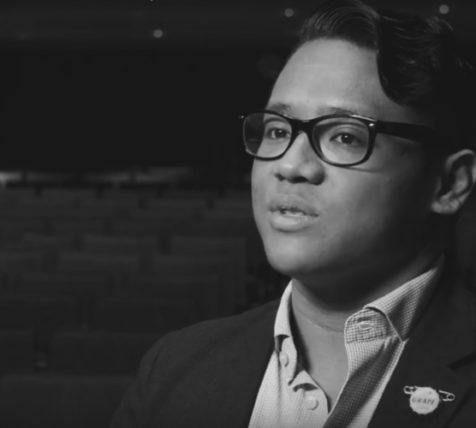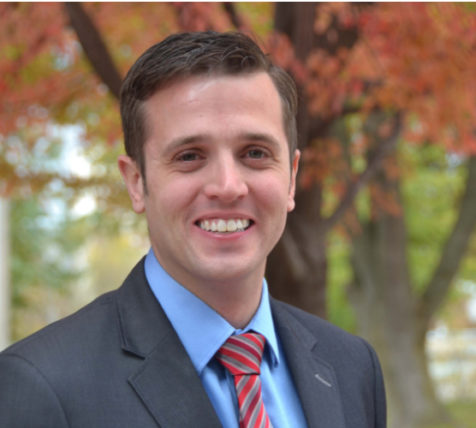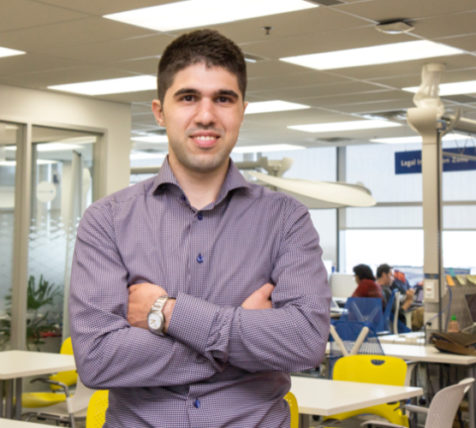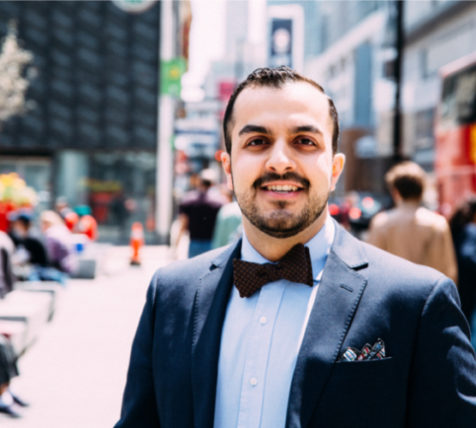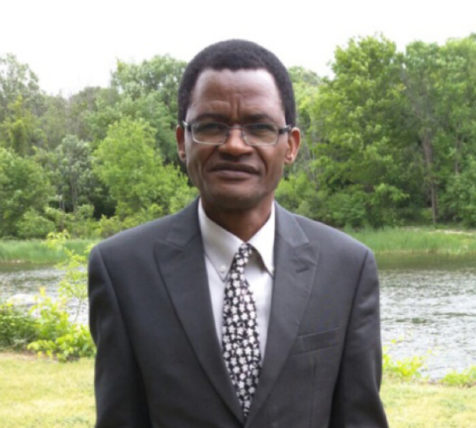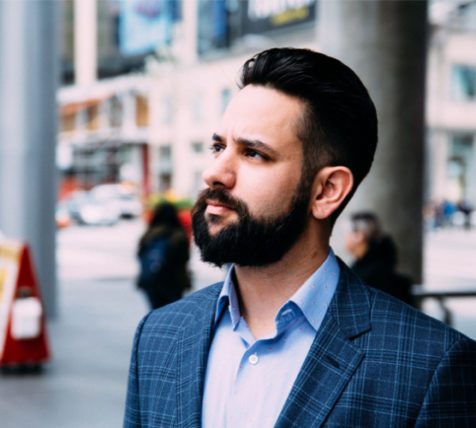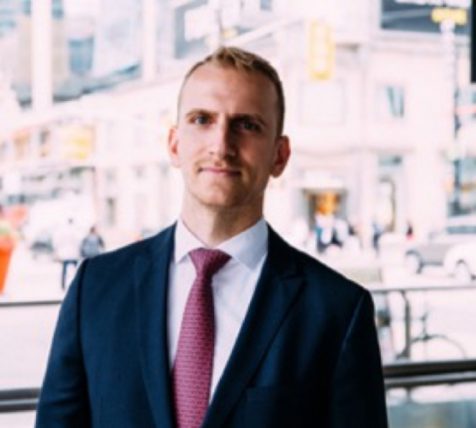Loreen Lobo
2015/2016
Loreen is an agent of change. Her endless thirst for justice and activism comes from her personal experiences of being treated like a second-class citizen.
About Loreen
Loreen is an agent of change. Her endless thirst for justice and activism comes from her personal experiences of being treated like a second-class citizen. She believes everyone deserves better. No matter their background. Her mom was a stay at home mom and her dad was an executive chef who worked long hours to support the family. At an early age, Loreen was taught to have conviction in her ideas. She learned that her unwavering compassion would motivate her actions. So it’s no surprise that her uncompromising mission is to simply help others. And in a time of political uncertainty, she is an important voice for unity.
Why law? What inspired your legal aspirations?
I come from a very traditional Indian household, where becoming a doctor, lawyer, or engineer was the epitome of success. I am the first person in my immediate family to go to graduate school. Besides my parents always encouraging me to strive for more, and the cliché “you love to argue you should be a lawyer” line fed to be all my life, I’ve always had a penchant for social justice and helping people. Human rights and activism is one way to do it, however, without huge media attention, it’s very difficult to effectuate change. Being a lawyer is probably the best way to make change happen, where you can work within the confines of the law to really make a difference in the world and in the lives of people.
Tell me about an incident that propelled you into law?
I was born and raised in Kuwait and moved to Canada when I was 11 years old. While I didn’t realize it then, living in Kuwait as a non-Kuwaiti subjected you to many injustices and difference in treatment. While I always heard about it anecdotally through my parents and older cousins, I felt it personally when I spent three months of the summer after my first year of undergrad visiting family in Dubai. Most of my family members have lived in Dubai for over 25-30 years and have become desensitized to that way of life. I understand that for South Asians, coming to the Middle East to work is the American Dream. It is a land of opportunity for many who leave their families behind to earn better wages. But the reality is far from the truth. As beautiful and glamorous as it is, there is a hidden shroud of people who have built these cities with their blood and sweat, quite literally. As a 19 year old, I remember going through the car wash in the afternoon on a regular day. And I still cannot forget the unusual sight. As we (my friend and I) pulled up to the gas station in 37 degree weather, I saw a group of 6 middle aged men (late 40s early 50s) dressed head to toe in a jumpsuit profusely begin cleaning my friend's car. It was really unusual to me because back in Toronto, we usually just go through a self-serve car wash. What really bewildered me was how hot it was outside, and how the men reminded me of my father, they were around the same age. And I felt so obnoxiously privileged and ashamed to walk into the gas station and wait in the air conditioning space until the car was cleaned. I was really interested to learn their story and so once they were done and in between the next car, I begin asking them a few questions about where they were from, their families, their life in Dubai and such.
All of their stories were very similar. I couldn't help but realize that although these men were here to fulfill their "American Dream", it wasn't quite a dream at all. In reality, they were working in very poor conditions, and living in probably equally horrible accommodations. The fact that my family friend was so oblivious to this really broke my heart. As did the reality that these people had left their families behind to come to Dubai to make money and give them a better life. But they were separated without choice, worked 15-16 hours a day in extreme heat, lived with about 20 people in a small room and had really not too many rights or options. The fact that any of these men could be my father, really affected me. The only difference was that my father somehow was able to make it out to Canada. This was one of numerous incidents that I witnessed of people struggling and at the mercy of their employers. I was so bothered and affected by this situation. Partially because this man was around my father’s age and partially because unlike Canada where you can get whatever job you want or multiple jobs and quit those jobs whenever, when you go to the middle your status is based on your employment. Your employer in a sense kind of owns you, they keep your passport most of the time, and you don't have the right to quit, complain or do anything else. You essentially live your life at the mercy of your employer whether you like it or not. My family friend's nonchalance and oblivion really bothered me. And I don't blame him as he was raised in this lifestyle, but I couldn't bear to see such conditions and I knew I wanted to do something in my life that made a difference to others. It is kind of crazy to think that my life has kind of come full circle, and in my small little way, I am now helping people achieve their dreams to a better life and future for their family. I must note that since that visit to Dubai a number of years ago, labor conditions have changed and the government has now implemented new rules and regulations that govern the working conditions, times and treatment of employees by their employers.
What kind of law do you practise?
I practice US business immigration. I am dual-licensed in both New York and Ontario.
What is a typical day at work/office like for you?
No day is the same for me, although my work is more transactional in nature. A typical day is engaging in strategy meetings with clients regarding their mobility issues and concerns, advising clients on various immigration issues, discussing new changes to US immigration law and how it impacts our clients, and inevitably putting out some proverbial fire or another.
What is the best part of your career?
It’s challenging. US immigration, especially under this political climate, is ever changing, but also ever challenging. There is so much to learn and so many nuances, that people don’t always realize. I also get to work with some of the largest multi-national corporations in the world in various different industries, and with clients from all over the world, through that I am constantly learning about new cultures, inventions, technology and ways of doing things. There’s never a dull moment.
What is your least favorite part of the job?
It feels like it’s always a mad dash. Most jobs seemingly have a ‘busy season’ or ‘busy time’, however, we’re always on the go, since my clients are mostly large-scale multinational and global organizations with various needs that are constantly evolving, things are always busy and deadlines can sometimes be quite short.
Where did you earn your law degree?
University of Buffalo
What legal case had a strong impact on you and why?
I’ve helped out with a few refugee cases, which have been particularly impactful, especially listening to the families’ heartfelt stories and learning about their relatives’ circumstances abroad. Knowing that I could do something, as small as it may be, to make a difference in the lives of people, reinforced my decision on why I went to law school. I think it was also impact on me because they put their trust and belief in me, and it was up to me to deliver and so the pressure was high but it was a very meaningful purpose. Since my practice is focused on corporate immigration, I do not see or meet my clients face-to-face because they are located all over the world and I assist them in relocating to the United States. For many, this is seen as a once in a lifetime opportunity at their American Dream. Being an immigrant myself, and knowing the sacrifices and struggles of new beginnings that my parents took on when they decided to immigrate to Canada for a better life, every time I assist someone to relocate to the United States, I feel a sense of their personal accomplishment and victory. A case that touched my heart was when I was assisting an Indian woman who was a software engineer working for a global corporation obtain her green card. I had taken particular interest in her case because her husband was not working and she was the bread winner for her family. While I did not know her personally of course, I was proud of her achievements. She was a woman working for a multinational corporation, who was able to relocate her husband and her two kids from India to the United States, based entirely on her own career accomplishments. Coming from a south Asian background myself, I know that this is no easy feat. She had made it, she was achieving her American Dream. And I wanted to do everything I could do ensure it was a smooth and efficient process. As I reviewed her case file, I got to know how she climbed the ranks and worked extremely hard to be transferred to the United States on a short term assignment. She continued to excel in her role and had her assignment extended. The company was so impressed with her that they wanted to sponsor her for a Green Card, which I had assisted her with. Throughout the process, we had many conversations about her life in India and how she had to work extremely hard and fight all odds to not only go to a top school in India but also work her way to the top of her field at this multinational company. I felt a sense of pride in her accomplishments and joy that I was able to play a small part in her American Dream.
Where did you complete your LPP work placement?
I completed my LLP placement at Nissan Canada. It was an in-house placement and it was fantastic. I got to work with and see things from the client’s perspective. Working directly with the General Counsel of Nissan Canada, I was involved in various strategy meetings with the business, mediations and arbitrations, as well as litigations matters that required me to work closely with outside counsel. Working in-house as legal counsel required you to be both legal and business savvy, as it often requires you to work closely with the business to identify issues and strategize on creative solutions to achieve a common end-goal.
Describe a particularly memorable or significant experience during the training component of the LPP:
The various simulations were quite memorable. I once had to speak to an elderly client with a language barrier (an actor, and a fantastic one at that), who was in to change his will. And I had to assess his sensibilities, without coming across as though I was questioning his intent or mind. In law school, we do moot courts, and litigation exercises, however, law schools don’t place any emphasis on client interaction, client meetings and relationship building, which is probably the most crucial part of your role as your lawyer and an advocate of change. The LPP challenges that and teaches you to deal with various types of clients in all walks of lives, and pulls you out of your comfort zone. That is the essence of what it takes to be a great lawyer.
Describe a particularly memorable or significant experience during the work placement component of the LPP:
There were several memorable experiences, but one particular one was when I had the opportunity to review and identify all potential legal issues that may arise in an ad commercial concept. I was required to closely review and analyze the ad concept to identify any potential legal issues related to advertising and IP law. That was quite a unique and different experience. I never thought in law school, that I would one day get paid to watch a commercial!
Describe some of the more particularly helpful tools or skills you acquired during the LPP:
Other than the legal research skills that were certainly enhanced during the LPP program, some of the most useful and pragmatic skills gained was public speaking skills and relationship management skills. There were various simulations that required us to wear various hats including, litigators, mediators, and counsel speaking to clients with language barriers or impairments. This really forced us think on our feet and be prepared for any situation. It also provided us with exposure to various different areas of law, as well as situations, that any lawyer should be prepared for and able to handle, especially interacting and dealing with various different types of clients. The other helpful skills that I learned was the importance of relationship management and team building. The LPP forces you to work in a group that simulates a law firm environment. Not every group is perfect, but then again, no work environment is either. This really teaches you to work with various different personalities and manage relationship to not only ensure the that end job is completed but also teaches you how to work cohesively and collaboratively with each other, even when there is discord in the group. That skill is certainly essential to coping in the real world, when there is high pressure, demanding deadlines, and multiple personality types that you have to work with, even when you do not organically get along.
Words of advice can you offer future LPP candidates:
Build relationships, and be cognizant of your environment and how you present yourself – it’s a small legal community, and try everything. There are so many different areas of law and niches that I didn’t realize existed when I was in law school. Don’t limit yourself to only what you think you’ll like, you may surprise yourself.
Anything else you'd like to share about the LPP and your experience:
It’s a fantastic program. The LLP team have really curated a program that is both pragmatic and fun. Be sure to make friends and build relationships, with the faculty as well as with the colleagues, you will be seeing these people in the real legal world.

